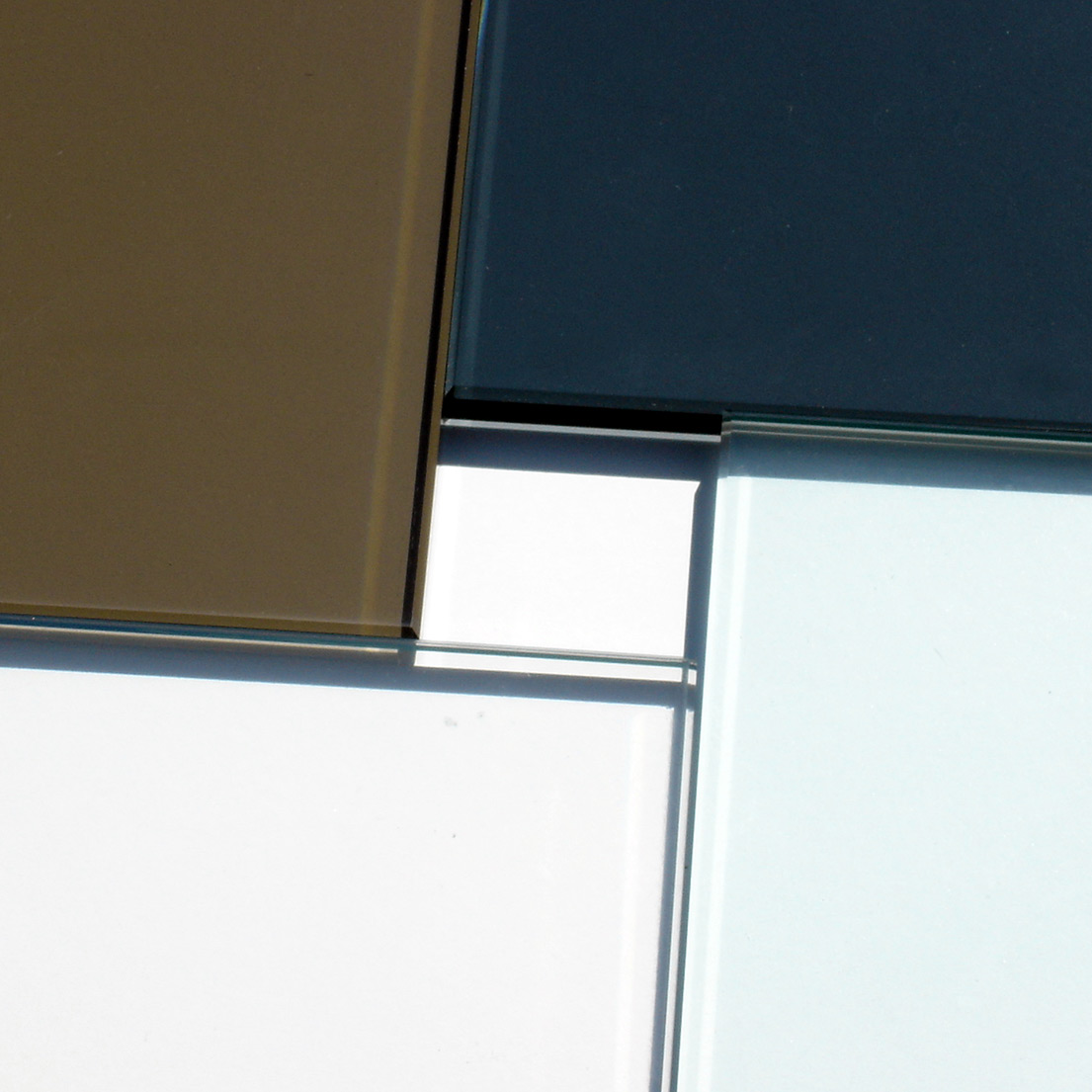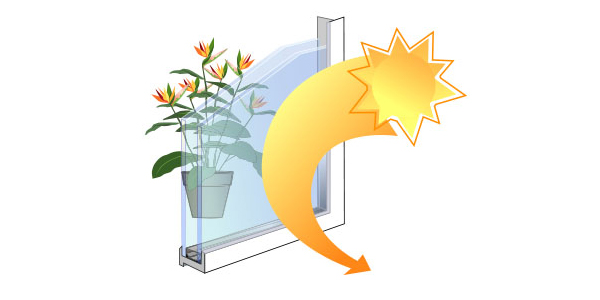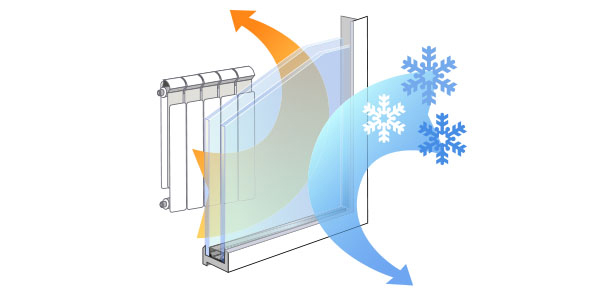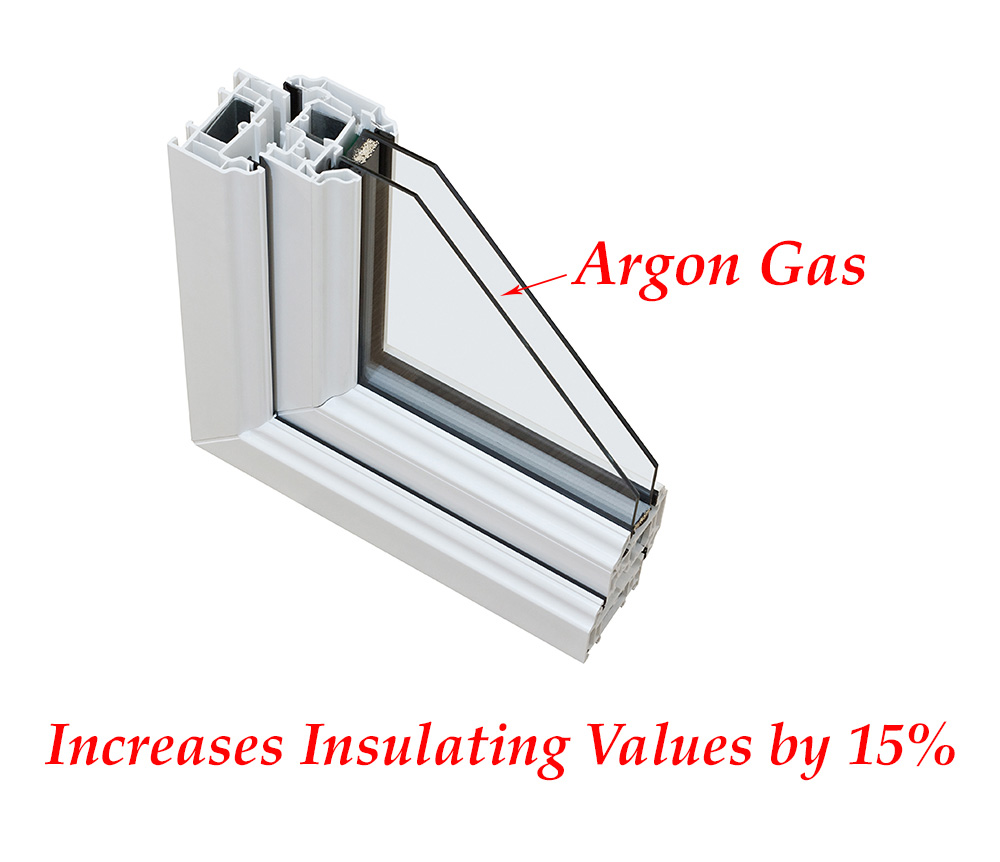
Window Glass
A window's Glass Package (alone) can provide you with comfort, efficiency, privacy, safety, and a reduction in exterior noise. With all of these benefits in window glass, it is important to learn what options exist. Let our award winning teams help you discover the possibilities.
Whether you are purchasing replacement windows or considering an upgrade to your existing window glass package, we can help. In fact, we are National Glass Association (NGA) members with NGA certified installation teams.
We want you to experience the benefits of a well thought out and tuned window glass package.
Window Glass Selection can optimize comfort & efficiency
Nearly all modern window systems take advantage of increasing efficiency through double-paned or triple-paned glass units. In order to reduce heat gain and loss, glass manufacturers seal two or three panes together to create an Insulated Glass Unit (IGU). Glass manufacturers design these glass units to keep buildings cooler during warmer months and warmer during colder months. The insulating airspace between the panes help achieve this efficiency.
However, manufacturers can further increase thermal performance by incorporating a variety of window glass technologies. Some of these technologies include tinted glass, low-e coatings, and insulating gases. You should consider these options when selecting a glass package for a new window purchase, or when upgrading existing windows.
Tinted glass

Many homeowners will apply a tinted film on the interior pane of their window. A tinted film will achieve a couple results - reduced sun glare and a reduction of solar heat gain. However, you should never apply or have these films applied to window glass. In fact, if tint films are applied to the window glass, most window manufacturers will void warranties.
There are a couple of reasons you should never apply interior tint films to windows
- First, it is fairly easy to scratch or damage film tint. For example, pets will often scratch tint film on windows and doors.
- Also, most window manufacturers and glass manufacturers will not honor warranties when you apply tinted films.
Window tinting companies apply tint film to the interior pane of a glass unit. So, the heat that you block from entering the house is absorbed inside the glass unit. Homeowners will experience premature seal failure or glass breakage when excessive heat is trapped inside the glass unit. Most people identify seal failure when there is moisture build-up between the panes.
Rather than using tint film to reduce light glare, glass manufacturers create tinted glass through the use of colorants that are added glass that extend throughout the entire thickness of the glass lite. The real benefit of using tinted glass is that the tinted pane can exist on the exterior side of the glass unit, without risk of the tint peeling away (as would happen with a tint film applied to the exterior - exposed to the elements). This mitigates issues known to occur when the interior pane is tinted (seal failure and glass breakage). You are able to achieve a reduction in solar heat gain when you take this approach to tinting glass. You will also be able to control glare - very effectively.
Low-E Coatings


While the use of tinted glass is an effective way to reduce solar heat gain, Low Emissivity (Low-E) coatings are more effective at this reduction. Glass manufacturers apply Low-E coatings interior surfaces of a glass unit. These are the surfaces that cannot be touched, when panes are sealed together in a Glass Unit.
Low-E coatings are made up of a variety of metal layers that are nearly invisible to the eye. These layers reflect long wave Infrared Energy away from the coating back towards the source. So, during the warmer months, you are able to reflect heat back to the exterior of the house. Therefore, you effectively block heat from entering the home or building. During colder months, you can mitigate heat loss by reflecting interior heat (long wave Infrared Energy) back into the house.
Insulating Gases

A majority of Insulated Glass Units only use air to insulate the space between the panes of glass. However, manufacturers also use noble gases such as Argon or Krypton to fill the space between the panes. Because of their heavier density, these gases do a better job at insulating the space between the lites in a glass unit. For example, insulating values can be improved by up to 15%, when you fill a Glass Unit with argon. Krypton gas can improve a window’s insulating value by nearly 30%.
Window Glass selection can provide privacy, safety, and reduce exterior noise
A well thought out glass package will do very well producing comfort and efficiency in a home. However, you can also optimize a window's glass package to produce privacy, safety, and a reduction in exterior noise.
You can chose these improvement options when selecting a glass package in a new window purchase. But, it is important to understand that you can upgrade the glass package on existing windows and doors.
Privacy











Homeowners most often desire to use privacy glass in entryways systems and bathrooms. However, architects also use privacy glass in areas to block the view of unsightly structure (such as an attic window).
There are a few ways to create privacy when designing the glass package for a window or door. The most common way to achieve privacy is through an obscure glass pattern. There are hundreds of glass patterns to choose from, offering a variety of levels of obscurity. Homeowners use obscure glass patterns when they want to achieve privacy, but still desire light to enter an area.
Most window and door manufacturers will offer 5 or 6 common obscure glass patterns. But, if further customization is desired, many window manufacturers will produce new windows without glass units. Once produced, a glass professional can install your choice of window glass. Most glass industry professionals will be able to offer 25 or more standard glass patterns. Many glass professionals will also be able to provide further customization through being able to produce Insulated Glass Units that provide obscurity through custom casted and/or etched glass - which can even be as customized as far as reproducing mountain scenery or a family monogram.
Another way to provide privacy in glass is to choose a reflective tinted glass. When a glass professional installs this type of glass, the result is a mirror-like appearance from the exterior. The bigger the light ratio difference, between the interior and exterior, the greater the mirror effect is.
Safety
There are several ways that you can select a glass package to provide safety. Obscured and tinted glass options provide safety by limiting what a potential criminal can see from the outside. If a criminal is unable to see the interior side of entry way, for example, break-in probability decreases.
Aside from using obscure or tinted glass to provide a safer environment, glass can be manufactured in a way that makes it stronger or even produces a desired breakage patterns. This type of safety glass comes in several different types:









Tempered
Builders install annealed glass in the majority of the windows in a home. When this type of glass breaks, it is characterized by the creation of large glass fragments. During the production process, glass manufacturers heat and then cool annealed glass at a very slow rate. However, glass manufacturers will use the heating and cooling process in production to achieve a stronger product.
When tempered glass is produced, manufacturers will heat the glass to a much higher temperature than annealed glass and then incorporate an accelerated cooling process. The result is glass that is 4 times stronger than annealed glass. Unlike annealed glass, when tempered glass breaks, it will break into very small glass particles. In fact, this breakage pattern is why tempered glass is required to meet safety glazing and building code requirements.
Safety glazing codes are intended to keep occupants safe by preventing situations where broken glass could injure people by becoming a projectile. Usually tempered glass is required by code when the following conditions are met:
- Glass in and near sliding and swinging doors
- Large lites of glass near walkways
- Glass around showers, tubs, and pools
- Glass near stairways, ramps and the landings for both
Heat-Strengthened
With heat-strengthened (HS) glass, manufacturers heat glass to a higher temperature than annealed glass and then cool it at much faster rate, but slower than tempered glass. As a result, heat-strengthened glass is 2 times stronger than annealed glass. Although, heat-strengthened glass cannot replace tempered glass when it comes to building code. The main reason for this is that HS glass breaks in a similar manner as annealed glass. Where tempered glass is not required by building code, HS glass may be a good option to provide a solution requiring stronger glass. HS glass is more capable of withstanding higher wind loads without breaking. It is also able to better resist thermal stress (such as situations like a grill near a window).
Another benefit of HS glass is that when it breaks, the large fragments are more likely to stay in place - unlike tempered glass which has a tendency fall away completely from the glazing system, immediately following breakage. If it is important for the glass to stay within the glazing system following breakage, then a solution using a laminated glass is advised.
Laminated
A great example of a laminated glass application is a car’s windshield. When this type of glass breaks, you can see the break, but it is unlikely that you would be able to feel the break on the glass from the inside. This is because laminated glass is constructed by using a layer of polyvinyl butyral (PVB) between two lites - under heat and pressure. So, even though the outer lite is broken, the inner lite may remain unbroken. This is a particularly useful type of glass product in areas needing protection from vandalism or blasts.
Noise Reduction


There are several reasons that someone may desire to have noise reducing glass installed in their windows and doors. Some of these reasons may include living near an airport, train, busy street, construction area, or a busy park.
Whatever the reason, Insulated Glass Units (double-paned or triple paned units) perform well in reducing noise naturally because of the space between the panes of glass. The greater the space between the the glass, the greater the glass unit will perform in reducing noise.
When different glass thicknesses are used to construct a glass unit, there are further benefits seen in noise reduction - a process known as glazing lite decoupling. The benefits of Glazing lite decoupling on sound reduction can be further enhanced by introducing one or two of the panes (in a glass unit) as a laminated pane. Laminated glass does really well as reducing sound heard through the glazing system of a window or door.

Reviews & Ratings


Denver Office
Find us.
4890 Ironton St #6E
Denver, CO 80239
Call us.
720-279-7872
Email us.
cgs@coloradoglass.co
Colorado Springs Office
Find us.
90 Mount View Ln., Unit C
Colorado Springs, CO 80907
Call us.
719-799-6639
Email us.
cgs@coloradoglass.co
